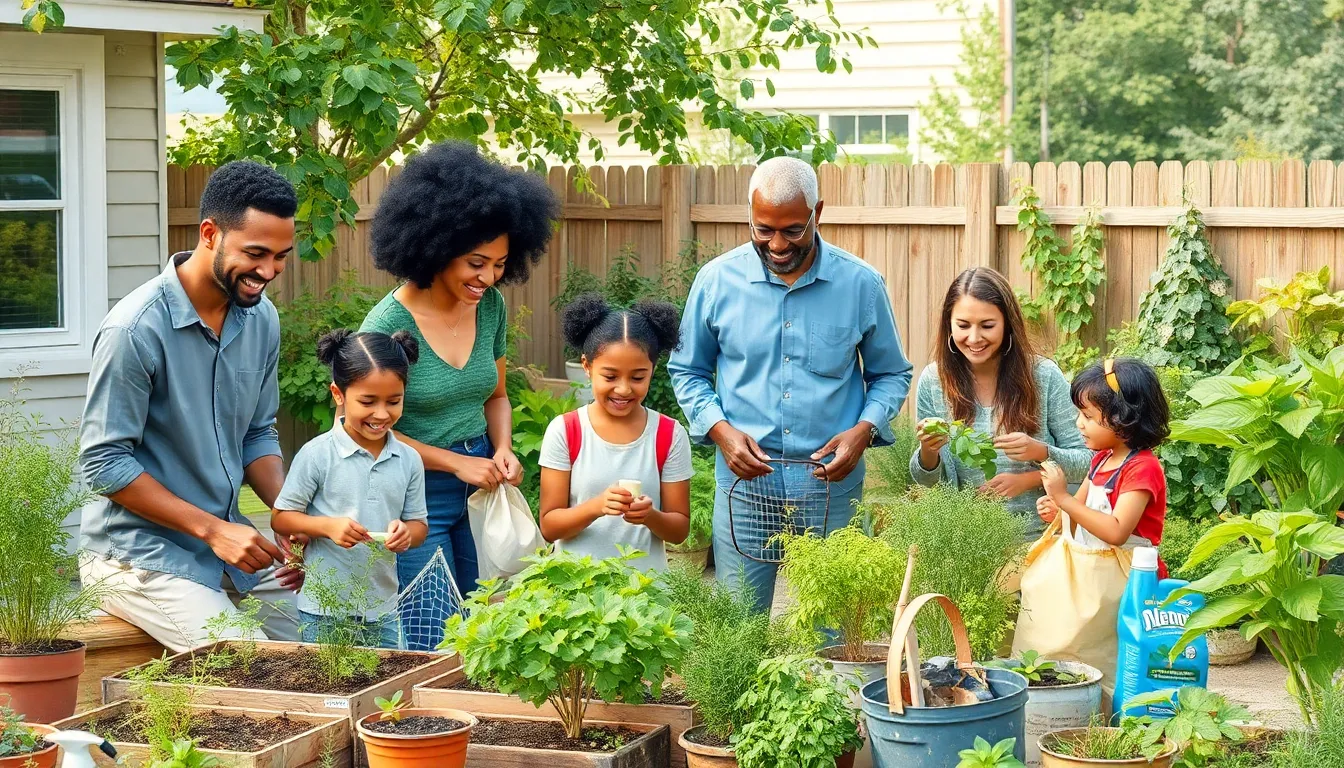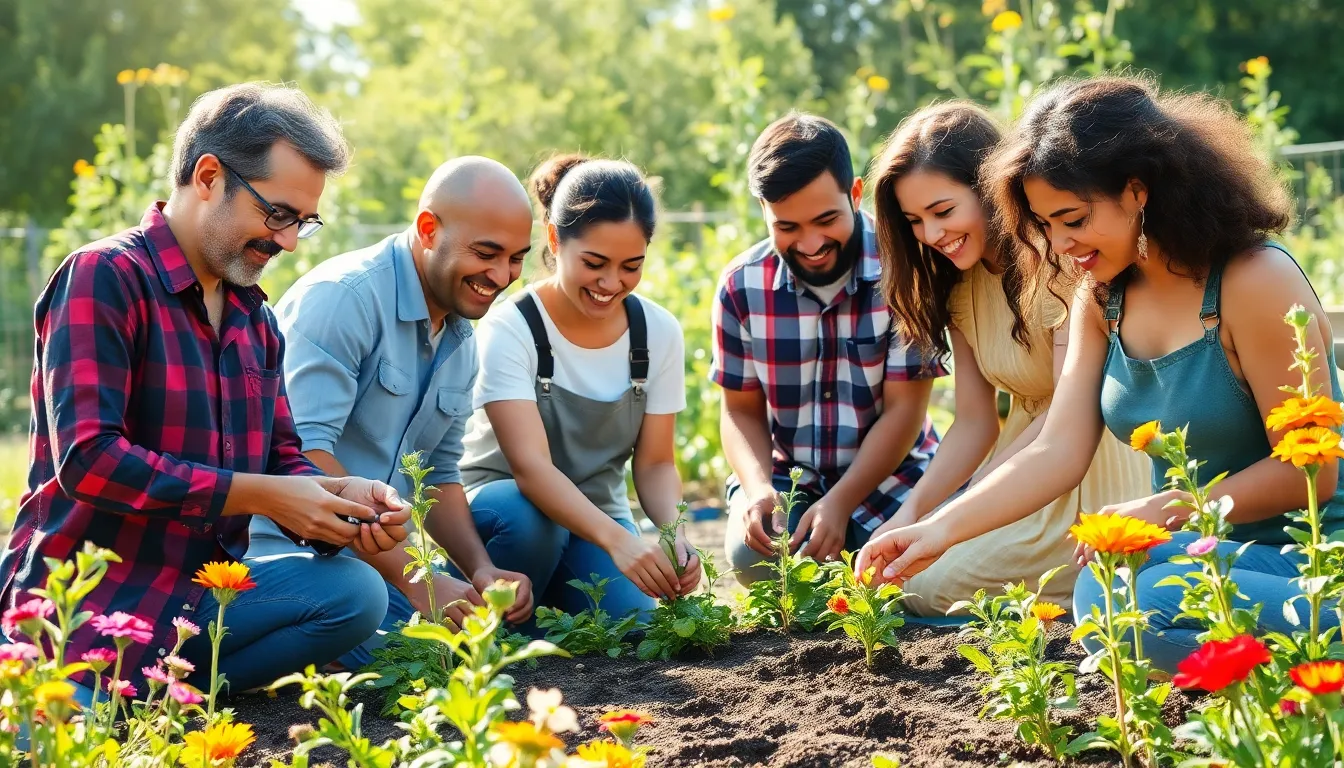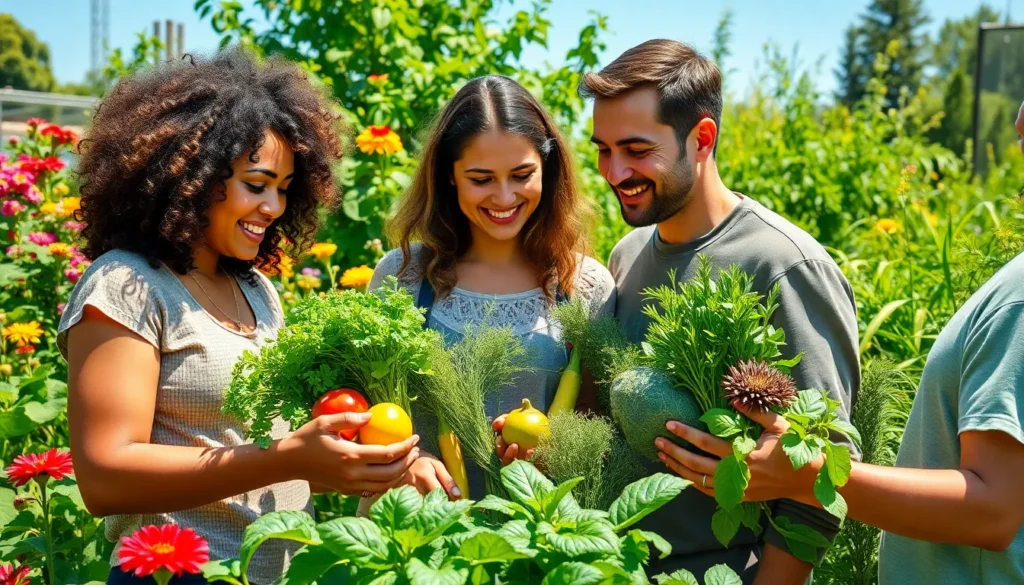In a world where plastic straws and fast fashion reign supreme, sustainable living books swoop in like eco-friendly superheroes. They offer a treasure trove of tips and tricks for anyone looking to save the planet while still enjoying life’s little pleasures. From turning your kitchen scraps into a composting wonderland to crafting DIY cleaning products that won’t make you gag, these books transform everyday tasks into delightful, earth-saving adventures.
Table of Contents
ToggleOverview of Sustainable Living Books
Sustainable living books serve as essential guides addressing the growing desire for eco-friendly lifestyles. These resources offer practical tips for minimizing one’s ecological footprint. Readers discover methods for reducing waste, such as composting organic matter and using reusable products.
Popular topics within these books often include energy conservation and sustainable gardening techniques. Individuals learn how to create their own cleaning supplies using natural ingredients, which helps avoid harmful chemicals. Each book typically emphasizes the importance of mindfulness in consumption habits, encouraging a shift toward more thoughtful purchasing decisions.
Authors often draw from personal experiences, adding authenticity to their advice. Various books cater to different lifestyles, ensuring accessibility for a broad audience. Recommendations on sustainable food choices promote plant-based diets, which can significantly lower carbon footprints.
Cases illustrating successful implementation of eco-friendly practices inspire readers to take action. Workshops, activities, and community engagement often accompany these insights, fostering a sense of connectedness among like-minded individuals. This community aspect creates opportunities for collaboration in local sustainability initiatives.
Sustainable living books not only provide knowledge but also empower readers to make meaningful changes. They clarify that sustainable practices contribute to both individual well-being and the health of the planet. Each reader is encouraged to find personal relevance in these practices, promoting ongoing interest in sustainable living.
Benefits of Exploring Sustainable Living Books


Sustainable living books provide numerous benefits for readers interested in adopting eco-friendly practices. These resources clarify concepts related to sustainability, making them accessible and actionable.
Understanding Sustainability
Sustainability emphasizes the balance between human activities and nature. Readers grasp essential principles guiding environmental stewardship through these books. Concrete definitions and examples enhance comprehension. For instance, concepts like reducing waste and conserving water become clearer when illustrated with real-life applications. Practical chapters often explain the interconnection of ecological systems and human behavior. Information on sustainable practices equips individuals with knowledge to make informed choices. Content curated for various lifestyles ensures that everyone finds relevant advice. This tailored approach encourages readers to take ownership of their sustainable journey.
Enhancing Eco-Consciousness
Enhancing eco-consciousness stems from the insights sustainable living books provide. Authors share personal stories, making the content relatable and inspiring. Various strategies presented encourage mindfulness in everyday decisions. Readers learn to assess their consumption habits critically. Awareness of alternatives to conventional products fosters a sense of responsibility. Engaging activities in the books invite readers to try sustainable methods within their lives. Workshops and community initiatives often accompany these readings, creating opportunities for connection and support. The cumulative effect of these insights pushes readers toward a deeper understanding of their impact on the planet.
Recommended Sustainable Living Books
Sustainable living books offer invaluable guidance for anyone interested in adopting eco-friendly practices. The following selections provide diverse perspectives on sustainability.
Classic Titles
“Silent Spring” by Rachel Carson explores the impact of pesticides on the environment, raising awareness about ecological balance. “The Omnivore’s Dilemma” by Michael Pollan examines food choices, emphasizing transparency within the food industry. “Braiding Sweetgrass” by Robin Wall Kimmerer combines indigenous wisdom with scientific knowledge, highlighting the relationship between humans and nature. Each classic title emphasizes the urgency of sustainability and inspires deeper connections with the planet.
New Releases
“Regeneration” by Paul Hawken presents bold strategies for reversing climate change, focusing on practical solutions rooted in community engagement. “How to Avoid a Climate Disaster” by Bill Gates outlines actionable steps for reducing emissions, inviting readers to take responsibility for climate action. “The Green New Deal” by various authors discusses policy changes required for a sustainable future. These new releases provide fresh insights and invigorate the conversation around sustainable living, encouraging widespread participation in eco-friendly practices.
How to Incorporate Lessons from Sustainable Living Books
Incorporating lessons from sustainable living books enhances eco-friendly practices in daily routines. Adopting simple strategies leads to impactful changes.
Practical Tips for Everyday Life
Practice composting kitchen scraps. This reduces landfill waste and enriches soil. Utilize natural ingredients for cleaning products. DIY solutions minimize chemical exposure and environmental harm. Engage in community-supported agriculture (CSA) programs. This choice supports local farmers and provides fresh produce. Embrace minimalism by decluttering possessions. This approach fosters mindful consumption and reduces waste. Participate in local workshops. Interacting with others who share these values strengthens community bonds.
Creating a Sustainable Reading Habit
Choose to read one sustainable living book each month. This habit cultivates knowledge over time. Share insights with friends and family. Discussing ideas reinforces understanding and sparks conversations. Join online forums or local reading groups. Connecting with others fosters motivation and accountability. Establish a dedicated reading space. This encourages regular reading and minimizes distractions. Track progress through a journal or app. Reflecting on lessons learned reinforces commitment to sustainable practices.
Sustainable living books are more than just guides; they’re gateways to a more eco-conscious lifestyle. By providing practical advice and relatable experiences, these books inspire individuals to adopt habits that benefit both themselves and the planet.
Whether readers are looking to reduce waste or embrace plant-based diets, there’s a wealth of knowledge waiting to be explored. Engaging with these resources not only fosters personal growth but also builds community connections.
As readers delve into sustainable practices, they cultivate a deeper understanding of their impact on the environment. This journey of discovery encourages ongoing commitment to sustainability, making a meaningful difference in the world.




